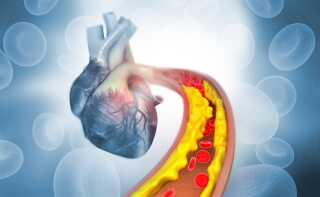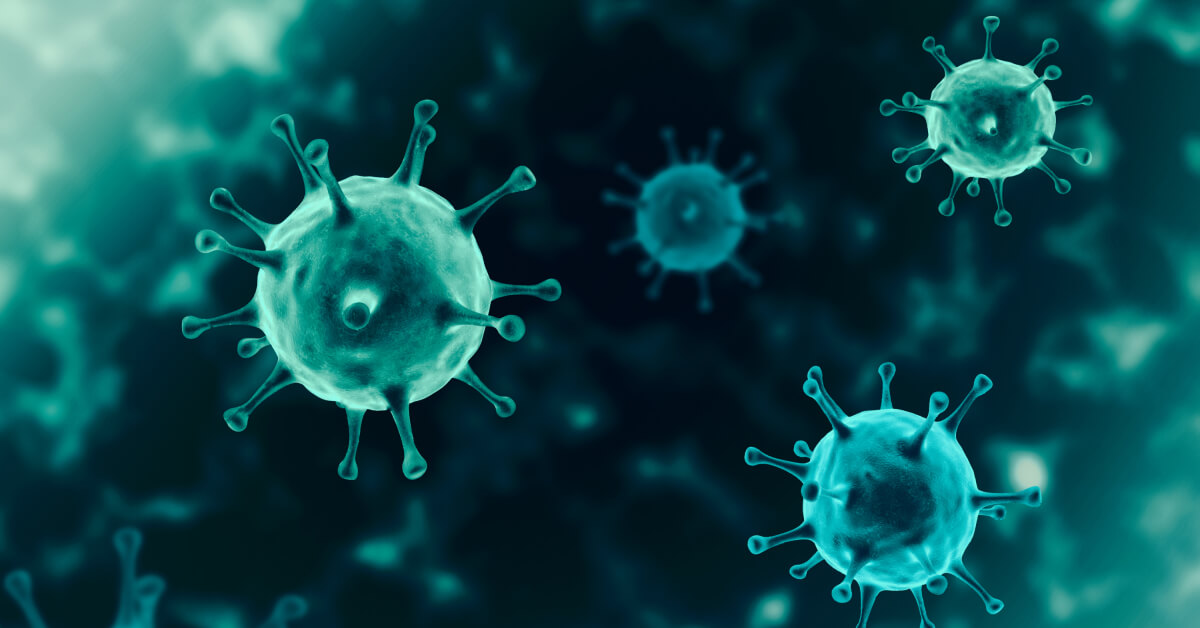
Brandywine Family Medicine Blog
Cholesterol
Published 06.11.2021
Cholesterol is a waxy substance that is made in your liver, that is then transported throughout your body and used to make cell wall membranes and hormones. We also get cholesterol from our diet as animal fat which is absorbed through our intestines and taken to our liver for circulation to the body. How much cholesterol your liver makes is determined by your genetics. If your parents have high cholesterol, you probably will as well. You can be a skinny little vegetarian marathon runner and still have high cholesterol and you can be obese and have a bad diet and still have a good cholesterol level. There is a lot we still don’t know about cholesterol. The main risks for heart attack and stroke are elevated cholesterol, diabetes, smoking, high blood pressure, and a family history of heart attacks and strokes. There are some older folks who have never had a heart attack or stroke with elevated cholesterol and people can have normal cholesterol and still have heart attacks. The only way to know your cholesterol is through blood work. All adults should be screened every five years for elevated cholesterol or hypercholesterolemia. If your cholesterol is elevated you should be screened more often to monitor the effect of lifestyle changes or medications you are taking, on your cholesterol levels.
We consume animal fat in our diet through eating red meat, cheese, butter, eggs, ice cream, bacon, sausage, lunchmeat, and shrimp. If your cholesterol is elevated you should work on cutting back on these things. Vegetable fat like olive oil and vegetable oil has no cholesterol but still has the same number of calories as oils from animal fat like butter. The thinner the oil at room temperature the heart healthier the fat is. Canola oil being the best and margarine, butter, and meat fat the worst.
Elevated cholesterol increases your risk for blockages in your arteries throughout your body. Blockages in the arteries to your brain can cause strokes and blockages in the arteries to your heart can cause heart attacks. Blockages in the arteries to your legs could cause pain in your legs with exercise and can cause decreased blood flow to your feet resulting in gangrene and limb loss. Having a high cholesterol is like pouring bacon fat down a drain - eventually, it is going to cause a blockage. Smoking dramatically increases your risk of getting these blockages and you should try every way you can to quit smoking. Diabetics are also at increased risk of blockages and all diabetics should be treated with medicine to lower their cholesterol. Elevated cholesterol or triglycerides levels have no symptoms and the only way to find them would be through blood work. The goal would be to have your cholesterol under 200 and the lower the better. The HDL or good cholesterol picks up loose cholesterol debris in your vessels and from cells and transports this cholesterol back to your liver for disposal. The higher the HDL is the better. For men, the goal is to have it over 40, and for women over 50 but the higher the better. You can raise your HDL through aerobic exercise and small regular amounts of wine. The bad cholesterol or LDL is responsible for taking the cholesterol from our liver and transporting it out to the body so the less of this the better. The goal is to have your LDL less than 100. You can lower your LDL through exercise and diet changes. Triglycerides are fat particles bound to sugars in your blood. These can be elevated from genetics and diet. The goal is to have your triglycerides under 150. Cutting back on alcohol if you drink more than two drinks per day can help and improving your diet by eating less take-out and snack food can help as well.
The best protein foods to eat would be white meat chicken or turkey with no skin, pork tenderloin, lean beef, not steak type meat, and cold-water fish like salmon or cod. Cooking oil should be liquid at room temperature like olive or canola oil. Eggs are ok at reasonable amounts like 2-3 times a week. Bacon and sausage should be rare, like once a month or less, treats. Lunchmeat, like pepperoni and salami, should be avoided. Try to buy hamburger meat that is 90% or better lean.
Besides diet changes, medications can be used to lower your cholesterol as well. Statins get such a bad rap on the internet but these drugs have saved hundreds of thousands of lives. Statins decrease your liver’s production of cholesterol and can lower your cholesterol by almost 30-50%, far more than you ever could by diet alone. There are rare problems that statins can cause liver damage but in 30 years of medicine, I have never had someone get liver damage from a statin. I have seen liver function tests increase from a statin indicating liver injury, but when stopped or switched to a different statin this has always resolved. Whenever someone is started on a statin or the dose changed, we monitor the liver function tests a few weeks later to make sure there is no problem. Driving around in a car is more hazardous to your health than taking a statin drug. Statins can have nuisance side effects of muscle aches and about 10-20% of people get these. Sometimes just reducing the dose or switching to a different statin is all that is needed to resolve this, but there are some people that just can’t tolerate statins. Independent of statin's cholesterol-lowering effect, they also decrease inflammation in the walls of the blood vessels and work to stabilize the plaque, or cholesterol deposits in our vessels. This makes these plaques less likely to rupture leading to a sudden blockage in a vessel causing a heart attack or stroke. About half of heart attacks come from slowly progressive blockages that eventually block all blood flow and the other half come from plaques of 40-50% vessel blockages that rupture causing an acute blood clot to form blocking the vessel suddenly. Statins can also increase your risk of diabetes but this risk is much less than the risk reduction of heart attack and stroke you get from being on a statin. Statins reduce your risk of heart attack or stroke by about 40%.
Another medicine that can be used to lower cholesterol is ezetimibe. This blocks absorption of the cholesterol in our intestines and can lower cholesterol by 20-30%. This has very few side effects and is usually well tolerated. It doesn’t have the anti-inflammatory properties that the statins do on the blood vessels though. There are some new injectable medications, PSK9 inhibitors, for treating high cholesterol that are very expensive, $15,000 a year, and typically only prescribed by cardiologists.
Book an Appointment

Sexually Transmitted Infections

There are many different sexually transmitted diseases that can affect people. Learn about the vari...
Alcoholism

Alcoholism is a serious issue that plagues many Americans. Dr. Elener discusses the effects, causes,...
Erectile Dysfunction

Erectile Dysfunction is an issue that affects 20% of men at 50. Dr. Elener discusses causes, solutio...